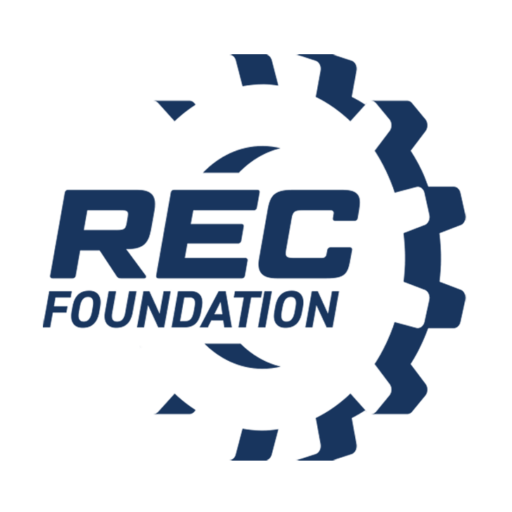While dedicated mentors abound at the Robotics Education and Competition Foundation, it is rare that a volunteer is named Teacher of the Year. In December, Natasha Craft, a robotics coach and educator of 27 years for Pulaski Elementary School in Somerset, KY, received the Robert and Patricia Kern National Teacher of the Year award for her work with Project Lead the Way. This accolade comes on the heels of her winning the Kentucky Farm Bureau’s 2023 Excellence in Ag Literacy Award just weeks earlier.
We sat down with this remarkable teacher and talked about the importance of starting STEM education early, how teaching runs in the family, and what she plans to do with new opportunities created through her achievements. Congratulations Natasha!
Tell us about how you arrived at Pulaski Elementary School.
Well, I've lived in Kentucky my whole life. In fact, my mom was principal at my school. Before that, my grandmother taught for 46 years before retiring. My sister is a high school counselor and my husband was a principal before he retired. All of us are educators, so I guess it runs in the family.
For me, I teach elementary school here in Somerset, and all the students in the building come to my STEM lab. We’re kindergarten through fifth grade, so they rotate through my classroom, and I mainly teach Project Lead the Way with them. I've done that for about 10 years now. This is my 27th year of teaching, and prior to the STEM lab I taught fourth grade science, so that's been lots of fun.
27 years is a long time! How did you make the transition from science teacher to the STEM lab?
I asked! After 12 or 13 years of teaching science I was ready for something new, so I went to my principal and I said, could I have one year to try teaching a different subject? She then asked me, “How would you feel about doing a STEM lab and teaching all the students in the building?” I just thought that was awesome…no tests, just learning science, engineering, solving problems, and driving robots. My students beg to stay in the lab instead of going to recess. So it's been amazing.
Was robotics a part of your school’s curriculum prior to your involvement with the STEM lab?
No, I brought it to the school. Before that there was nothing in place outside of science education for fourth graders. I tried to do lots of hands-on stuff, but still it was different than a lab. I guess I came in at a good time in 2014, because that was the first year that Project Lead the Way had an elementary program that was available to everyone. Before that, it was always limited to just middle school and high school. So when I started searching for something to do in a lab, I found Project Lead the Way. I brought that in and for fifth graders there was a robotics module that used VEX kits. So that's kind of how I learned about it. At first we were just going through the modules and following the instructions, but after a year or so we branched out and thought, “We can compete with this, we can do this”. We kept getting bigger and started our IQ team after that.
Clearly you had a classroom full of very capable kids! Why do you think it is important to get students as young as yours involved in STEM early?
I think it's incredibly important. It's a game changer to start them that early because it completely changes their thought process, so when they're adults, they attack problems differently. I feel like they have the necessary skills, not just in science, but whatever problem they're faced with - they can handle it. When I first started, the kids would fall apart if I gave them a problem to solve and they couldn't get it to work right. There were tears. They would just stop and refuse to do anything else because they had never been faced with that before. So this program has given them confidence because all we do is solve problems. I always tell them, “this is not going to work the first time. You're going to have to really work at it and figure it out.” Now they've gotten to where it doesn't bother them if it doesn't work.
For example, when I won the award, a TV crew came to my lab with about 15 people around the room in suits, and my students weren’t bothered at all. They just explained to the reporters what they were doing and what didn't work, and moved on to the next idea.
Also, when working with other students it’s great because they're not working in isolation - they're working in a group. So they have to learn to be able to communicate with other kids whether they like their partner or not. They have to be able to talk with them and come up with a solution. There's just so many skills that are important outside the classroom that they learn through this experience.
Congratulations on winning Teacher of the Year! How did it feel to receive that award?
I couldn't believe it. I knew I'd been nominated and had to fill out the paperwork and stuff, but I never expected to actually win anything. They had a group of 32 people that they had recognized as outstanding educators and I learned I was in that list.
And then I get the phone call. “This is CEO of Project Lead The Way. I’m just calling to tell you you've won our top award.” I couldn't believe it, but I really think it will open lots of doors. I've been thinking toward the future, of course.
Like I said, this is my 27th year of teaching, so I'm within a year and a half, two years of retiring, but I don't want to stop working. So I really think that by winning this award and the Kentucky Farm Bureau Teacher of the Year award I'm going to be able to talk to a lot of people. There are conferences I wouldn't have been invited to otherwise and I’ll be able to continue to educate, but kind of in a different way after I retire. I think by being able to promote REC Foundation programs to a wider audience, I can show other teachers the benefit of bringing robotics to the classroom.
Do you think it will be difficult to get buy-in from other educators? What will you tell them?
I don’t think so, but I know they're going to feel intimidated at first. I did myself, and you might not know where to turn or what to do at first, but it’s important to just do something. Jump in and try it. It's going to be okay, and you're going to learn as you go. The best part is, the kids are going to help.
There's so many resources available to educators, and there’s a huge community of people involved in REC Foundation programs that are willing to help. I know there's mentorship programs that are offered where you can get step-by-step instructions and one-on-one help if you need it. There's just so much support out there, and it's worth taking the risk yourself and occasionally having to say, “I don't know”.
In the end, it's worth trying because I have seen the impact these programs have on the kids as they learn robotics themselves and grow. If you can get up enough courage to get started, the students are going to get excited and pull you along…and then you just keep moving!


